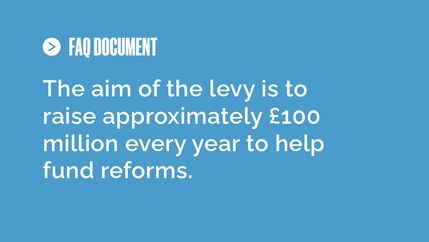
The list of businesses who failed to comply with the Money Laundering, Terrorist Financing and Transfer of Funds (Information on the Payer) Regulations 2017 during the period 1 January 2022 to 31 March 2022, showed 66 agents had been issued penalties, five of which are members.
Across the whole list of 66 property businesses, the nature of the published breaches includes failing to apply for registration at the required time; failures in carrying out risk assessments, having correct policies, controls and procedures in place; conducting due diligence and record keeping; and failures in the provision of registration information.
Compliance and regulation
Ongoing work to support members in reviewing compliance with legislation is a key area for Propertymark’s team of Compliance Auditors
This involves regular reminders about responsibility and liability, updates on HMRC and Trading Standards enforcement and penalties, and information on data protection. Legislative compliance is key to Propertymark membership with many members referencing this as their reason to join.
Members are directed to check the criteria for anti-money laundering registration on joining Propertymark. Following this, regular communications are shared with members through our magazine and newsletters alongside expert speakers at free regional meetings and other CPD events.
Education and training
All estate agents and certain letting agency businesses must be registered with HMRC for anti-money laundering
As the supervisor for estate and letting agency businesses, HMRC publishes details of businesses that do not comply with the regulations. The Fifth Money Laundering Directive expanded the scope of obliged entities within the property sector to include the lettings agents managing properties charging a monthly rent of EUR 10,000 or more.
Money Laundering Reporting Officer (MLRO)
Agents and auctioneers must put in place procedures to detect suspicious activity and prevent money laundering to reduce the risk that criminals may target and exploit property agencies for financial crime. Having a Money Laundering Reporting Officer (MLRO) is a key part of that process. It is also essential that everyone who works within the business knows who the MLRO is and can name them easily if called by HMRC.
Training and guidance are available which outlines responsibilities, risk assessments, internal controls, and how to establish, maintain and review written policies.
Propertymark reminds all agents falling within scope, of the importance of being registered with HMRC, and of implementing processes and training to ensure that staff throughout your business understand their responsibilities and support your compliance.
Compliance support from your professional body
Propertymark will soon be launching additional compliance services as support visits for those members looking for reassurance on multiple areas including (but not limited to) anti money laundering, client money protection, data and consumer protection. To find out more email [email protected]
UK Government focus on Economic Crime
In August, the Economic Crime (Transparency and Enforcement) Act was enacted, and a Register of Overseas Entities launched. A second Economic Crime Bill has been introduced in the House of Commons and will link to Companies House reform and cover wider issues about business transparency and reporting.
HMRC Economic Crime Levy research
HMRC have approached Propertymark asking if members with annual turnover that exceeds the threshold to pay the Economic Crime Levy will help with research to inform the structure of the system.
All input will be anonymous and confidential and Propertymark does encourage members that will be affected by these systems to help to shape the future systems. HMRC want to engage with businesses that fall within each of the ECL bandings.
| Entity Size: | Medium | Large | Very Large |
| Annual Turnover | £10.2M – £36M | £36M – £1Bn | Over £1Bn |
To support this research, please email [email protected] by 21 October 2022.
FAQs: Economic Crime Levy (UK)
The levy was announced at Budget 2020 and the Economic Crime (Anti-Money Laundering) Levy Regulations 2022 were published on 11 March 2022. The Regulations came into force on 1 April 2022.







